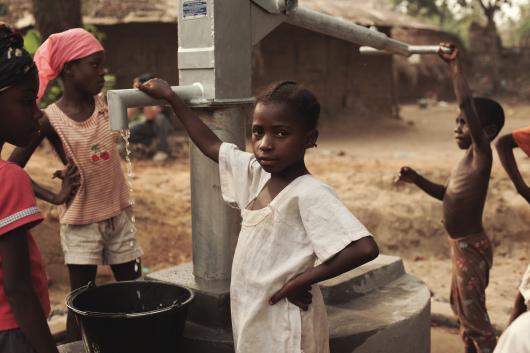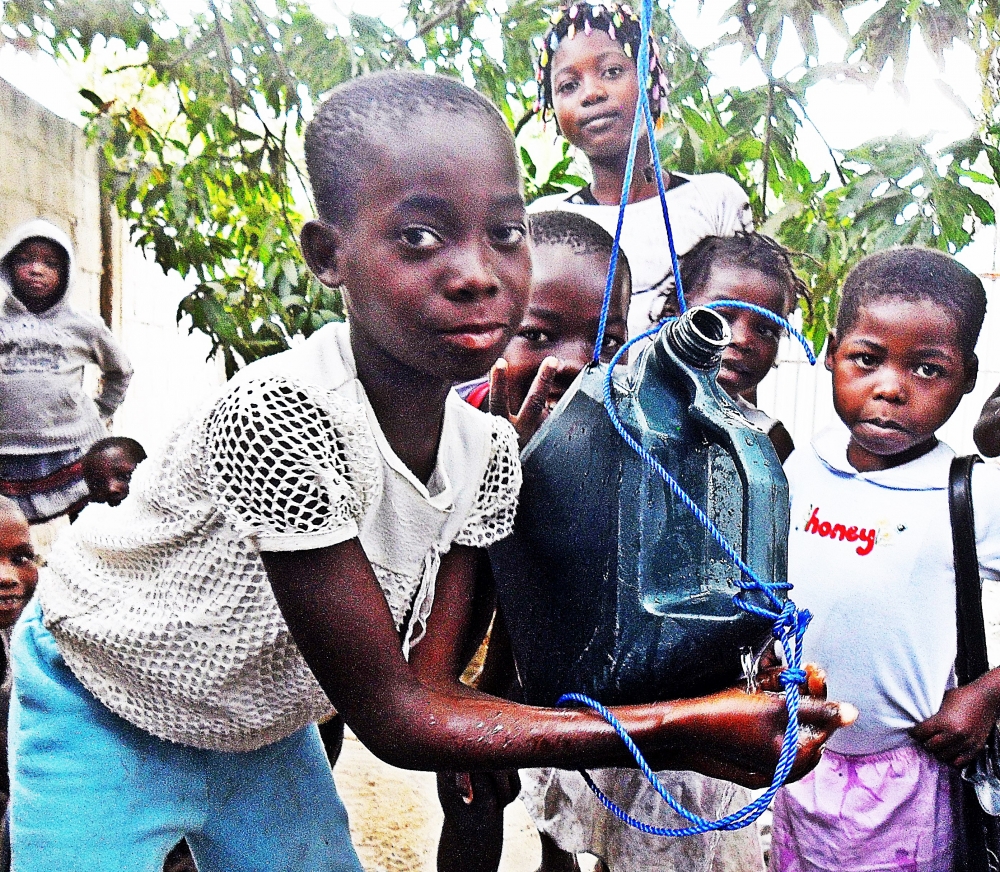
Water is something most of us consume and use without thinking. We take up to ten minute long hot showers daily, using more water than a person living in a slum would for an entire day (UN). Rarely do we worry about the quality of our water or sanitation systems, because water borne illnesses are so rare here. Unfortunately, this luxury of not worrying, this mentality that our water is clean, is not a reality for many in the world today.
It is easy to understand how important it is to get the necessary amount of water to survive, but what about people who do not have access to safe drinking water? What about their needs? World Water Day is a chance to raise awareness and funds for clean water and sanitation projects throughout the world. We encourage you to learn about the crisis and what you can do to help in anticipation of World Water Day 2014!
The Crisis
Every 20 seconds a child dies because she does not have access to basic sanitation. The UN has recorded that in 2011, 780 million people did not have access to clean drinking water—that is 2.5 times more people than the population of the United states. This means that these people are unable to meet their basic water needs, causing dehydration if they don't drink the water or diarrhea and other water-borne illnesses if they do. Water and sanitation are not difficult to improve, and the benefits are incredible, 90% of diarrheal diseases could be prevented just by having improved sanitation and water to drink (UN).
Imagine Her Story
You are a young girl standing in your home without running water. Your mom tells you to go get water for you and your family at the neighborhood well. You dread this chore, not only is it hot out, but also you have to walk miles to reach the only well near your village. You join your mom and other women around the world, who collectively spend over 200 million hours a day collecting water. This means you will miss school once again to meet your needs. The labor involved in this chore increases your thirst for the very thing you are working to collect.
You walk on, because it is your duty, and there isn't a viable second option — there are only two choices: face unavoidable dehydration or risk the water. You will do what you need to do to survive, hopefully you will avoid illness, but you have experienced the effects of unsafe water before, and you know that this is a life-and-death issue.
This is the reality for too many girls today. Many who do not have clean drinking water also lack improved sanitation. Today there are 2.5 billion people do not have basic sanitation, one billion of those being children. The water crisis is tied to the sanitation crisis, we cannot fix one without fixing the other. It's estimated that the water crisis is responsible for half of all hospital beds being filled throughout the world.
The Progress
A lot of progress has been made in the past 20 years. By 2010, 89% of the world had access to improved drinking water, meeting the Millennium Development Goal’s drinking water target 5 years ahead of time (UN). Over the last four years we have worked on clean water projects in 9 countries which has helped 24,250 people gain access to clean drinking water, and proper hygiene and sanitation.
Our impact includes our partnership with Splash which helped over 10,000 children and school staff gain access to clean water in Cambodia. We've partnered with Roots of Development on two projects in Haiti, the first was to establish a clean water facility in Nan Plim for 1,200 people and the second was to help repair a water facility in Gran Sous that was severely damaged after Hurricane Sandy. Most people think of a well when they think of clean water projects, but sometimes what communities need first and foremost is better hygiene and sanitation education, which is what Water School focuses on in Uganda helping to impact 1,049 kids through our project with them. Breaking Ground and the community of Baleveng built an electric pump and water reservoir that will impact 3,500 people in the community through our project with them.
These are just a few of the projects we've worked on in the last four years. We work to encourage sustainability in our partner projects through community involvement. By patterning with organizations, communities, and people we are able to make a lasting impact.
More Needs to be Done
But there is more that must be accomplished. Due to un-safe water sources and poor sanitation, diarrhea still causes 1.5 million deaths each year, killing more children than malaria, AIDS, and measles combined.
This year for World Water Day, we are partnering with The Adventure Project for our second partnership. We hope to raise a total of $75,360 in a matching grant where we will match the first $37,680 raised. Through this project, 5,750 people in Uganda will gain access to clean water through 23 rebuilt wells. And to keep the project sustainable, 46 mechanics will be trained to keep the wells working for the community and provide them with a source of income.
Join us this Monday, March 17, as we launch our World Water Day campaign with TAP.
Learn More About Our World Water Day Campaign

Photo Credit: Well Done Organization

Photo Credit: Oasis Mozambique
